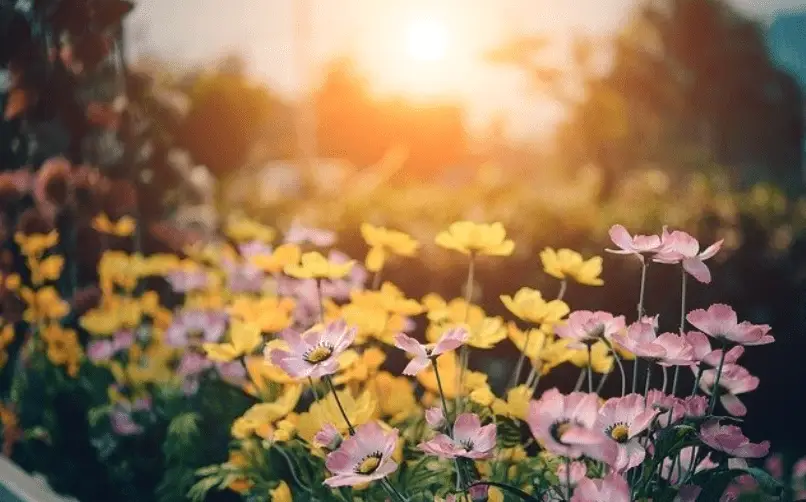Last Updated on June 12, 2022 by Gary Stephen
Having a well-tended garden is great especially if you love spending time outdoors, surrounded by your own slice of nature. If you are unsure how you can take care of your garden, you might find yourself in a place with dying plants and a depressing sight that is the complete opposite of what you had in mind. Luckily, the following garden care tips will help you take proper care of your garden.

Garden Care Tips
1. Check and Water Plants
Plants require a considerable amount of care if you do not want them dying because of your neglect. To keep your garden in good shape, make sure that you are watering your plants properly. You must be aware of how much water each plant needs to ensure that you do not overwater it or provide it with less than what it needs. You should also make it a point to check your plants for any issues and consistently remove weeds that can affect your other plants. Another important part of taking care of your plants is checking if they need to be fertilized because sometimes, your soil will not have the right amount of nutrients for your plants. If you notice that they are not getting enough nutrients, then you should check different types of fertilizers that you can use.
2. Keep Your Tools Well-Maintained
Garden tools are also essential in taking care of your garden. Not cleaning your tools properly will cause them to become dull and may actually cause more harm to the plant, not to mention that having dull or rusty gardening tools will have you exerting extra effort and requiring strength to get the results that you are looking for. Your gardening tools need to be well-maintained to ensure that your plants are healthy.
3. Have the Right Garden Set Up
You cannot really use indoor furniture for your garden as it can be quite heavy which is detrimental to your grass. If your family constantly spends time in the garden then you should get a whole garden furniture setup, but if you are the only one who sits outdoors, then you can look into getting teak adirondack chairs that are easily moved around and will not make your garden an eyesore. To avoid any issues that may arise from using the incorrect furniture, look for garden-specific pieces that are made of natural elements.
When choosing your garden furniture, consider opting for multifunctional pieces. For example, you can find flower pots that double as solar lamps, tables that also function as fire pits, and outdoor benches that double as planters.
Multifunctional pieces allow you to save space on furniture, giving you more room for the plants in your garden. They can also serve as a way to bring some plants into your outdoor living space, creating a more organic transition between the two sections of your garden.
Aside from making your garden more comfortable and aesthetic to look at, the right garden furniture can also be a lifesaver for the days in which you are gardening. After spending a couple of hours working, comfortable chairs and pillows can be a great way for you to relax without having to return to your home.

4. Take Precautions Against Pests and Animals
During the spring and summer seasons, you will notice the increase in the number of animals and pests that are getting into your garden exponentially. This means that you need to take necessary precautions or else your plants will suffer. You can use nets to ensure that animals cannot reach your plants to feed on them. Additionally, you can also use natural repellents for pests that can cause any kind of harm to your plants.
If you prefer to avoid all pesticides, even organic ones, there are a number of natural ways to repel common garden pests. These include:
- Choosing plants that are insect-resistant, such as garlic, onions, basil, and radishes. If you prefer growing flowering plants, you can choose varieties such as chrysanthemums, marigolds, and nasturtiums.
- Attract beneficial insects by growing plants that attract them, such as calendula and coriander.
- Grow strong-scented herbs near vegetables repel other pests.
- Alternate plants to confuse pests.
- Use floating row covers. These keep pests out while still allowing water and light to penetrate through.
- Remember, a small number of pests can be helpful. While this may seem counterproductive, these insects serve as bait and a food source for beneficial insects that you want to attract to your garden.
- If you notice an outbreak, make sure to remove any infested plants immediately to prevent the damage from spreading through your garden.
- Make sure your soil is healthy. You can do so by incorporating natural fertilizers to the earth. These fertilizers can also help activate beneficial microbes in the soil.
Conclusion about garden care tips
Call Lexington arborists to prune your trees
These different steps will help you ensure that your garden stays in tip-top shape for as long as possible. Plants are living things that require attention and dedication. Making sure to take proper care of them will not only give you satisfaction when you watch them growing and spreading, but it will also give you a place of nature that you can spend time in for some peace of mind and serenity.
